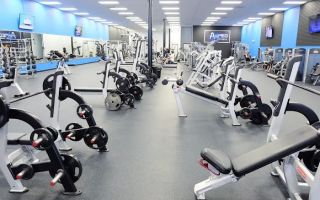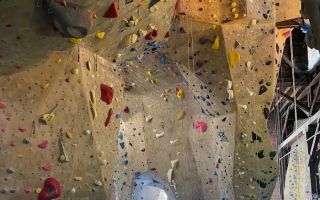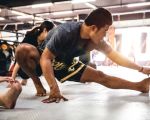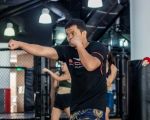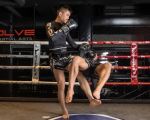Muay Thai Kicking Techniques and Drills: Mastering Power and Precision
- Why Kicking is Crucial in Muay Thai
- Understanding Different Types of Kicks
- Essential Drills for Kicking Techniques
- Improving Kicking Power and Precision
- Common Mistakes in Kicking Techniques
- Recommended Equipment for Muay Thai Kicks
Why Kicking is Crucial in Muay Thai
In Muay Thai, the art of kicking is a powerful tool, often referred to as the “art of eight limbs.” A well-executed kick can be a game-changer in a fight, providing not only offensive power but also defensive advantages. Muay Thai kicks target various areas, including the legs, body, and head, making them versatile and effective in all stages of a fight.
Kicking in Muay Thai is essential because it allows fighters to maintain distance, control the pace of the fight, and land debilitating strikes that can damage an opponent’s mobility and stamina. Whether it’s a low kick to the thigh or a spinning kick to the head, each kick has its purpose and timing.
Understanding Different Types of Kicks
Muay Thai features several types of kicks, each serving a specific purpose in a fight. Understanding these kicks will not only enhance your versatility but also help you choose the right technique based on the situation:

Absolute Power Fitness
49 Wyckoff Ave, Brooklyn, NY 11237, USA
1. Teep (Push Kick)
The teep is the Muay Thai version of the push kick. It’s typically used for maintaining distance, disrupting your opponent’s rhythm, or setting up other attacks. The key to a successful teep is precision, as it targets the opponent’s chest or face with a quick and straight motion.

Absolute Power Fitness
49 Wyckoff Ave, Brooklyn, NY 11237, USA
2. Roundhouse Kick
The roundhouse kick is the most iconic kick in Muay Thai. It involves rotating the hip and striking with the shin or foot to the opponent's body or head. When executed correctly, it can generate tremendous power and is often used to break down an opponent’s guard or defenses.
3. Low Kick
The low kick is aimed at the opponent’s thighs, targeting the muscles and nerves. This kick is commonly used to weaken an opponent’s legs, reduce their mobility, and set them up for other strikes. It’s especially effective against fighters with a strong stance, as repeated low kicks can break their balance.
4. High Kick
The high kick targets the head, aiming to land a knockout blow. High kicks require excellent flexibility and timing but can be devastating when executed properly. It’s crucial to set up the high kick with combinations to avoid telegraphing the move.
5. Spinning Back Kick
The spinning back kick is a highly effective, powerful kick that involves a 360-degree spin followed by a strike with the heel or foot. It’s difficult to land but can surprise an opponent and deliver significant force when it connects.
Essential Drills for Kicking Techniques
To master Muay Thai kicking techniques, consistent practice is essential. Below are some key drills to help you refine your kicks and build the necessary strength and flexibility:
1. Shadowboxing with Kicks
Shadowboxing is one of the best ways to practice Muay Thai kicks without any equipment. Focus on executing your kicks with proper form and technique. Imagine an opponent in front of you and practice your teep, roundhouse, and low kicks, ensuring each one flows naturally.
2. Kick on the Heavy Bag
Striking a heavy bag is essential for building power in your kicks. Start slow and focus on technique, then gradually increase speed and power. The heavy bag allows you to practice kicks with force, and by using different angles, you’ll simulate a more dynamic opponent.
3. Pad Work
Pad work with a partner or coach is critical for improving accuracy and power. Hold pads at different angles to help the fighter practice landing kicks at various points of an opponent’s body. The focus is on landing precise kicks, improving speed, and coordinating strikes with the opponent’s movements.
4. Kicking Drills with the Teardrop Bag
The teardrop bag is an excellent training tool for developing the precision and technique of high kicks. By kicking the bag in different patterns, you can improve your form, flexibility, and consistency while targeting the head and body.
Improving Kicking Power and Precision
To increase the effectiveness of your Muay Thai kicks, both power and precision need to be developed. Here are some tips for enhancing both:
1. Hip Rotation and Core Engagement
Generating power in your kicks requires the proper use of your hips and core. Focus on rotating your hip during the kick and engaging your core muscles for added strength. The faster and more fluid the hip rotation, the more powerful your kick will be.
2. Flexibility Training
Flexibility is crucial for executing high kicks and achieving better range. Stretch regularly to improve your hip, hamstring, and quadriceps flexibility. The greater your flexibility, the higher and more precise your kicks will become.
3. Focus on Accuracy
Precision is as important as power in Muay Thai kicking techniques. To improve your accuracy, incorporate drills that focus on hitting specific targets, such as the head, midsection, or thighs. By practicing targeted strikes, you can ensure that every kick lands where it’s intended.
Common Mistakes in Kicking Techniques
While practicing kicks, it’s common to make some mistakes that can hinder your progress. Here are a few common errors and how to fix them:
1. Inadequate Hip Rotation
Not fully rotating your hips can lead to weak and ineffective kicks. To correct this, ensure that your hips are driving the motion of the kick. Practice slowly to develop the proper rotation before increasing speed.
2. Overcommitting to the Kick
Overcommitting to a kick can leave you off balance and vulnerable to counterattacks. Always ensure that your stance is solid and that you can quickly recover after throwing a kick. Focus on balance during each kick to improve your overall technique.
3. Lack of Follow-Through
Not following through on your kicks can limit the power and effectiveness of your strikes. Practice kicking through the target, not just to it. This follow-through will increase both power and impact, making your kicks more dangerous in the ring.
Recommended Equipment for Muay Thai Kicks
To enhance your Muay Thai kicking training, the right equipment can make a significant difference:
1. Shin Guards
Shin guards are crucial for protecting your shins during sparring or bag work. Look for a pair that provides comfort, mobility, and proper protection.
2. Kick Pads
Kick pads are excellent for training with a partner. They allow you to practice various kicks while providing resistance and feedback. Focus on striking the pads accurately and with power.
3. Heavy Bags
The heavy bag is a staple in Muay Thai training. Use it for practicing power kicks, and remember to switch up your kicks to develop well-rounded skills. A high-quality heavy bag will provide you with the resistance needed to increase your kicking strength.

